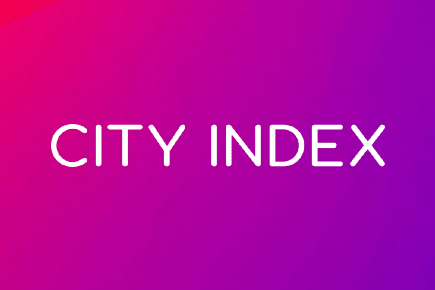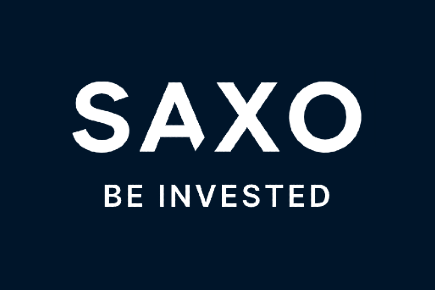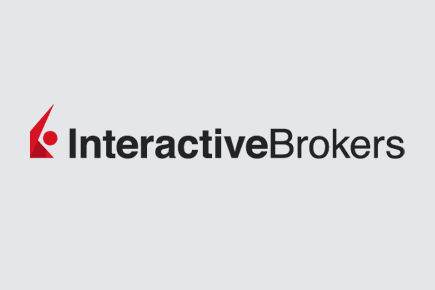I have done a complete analysis of forex brokers, taking into account commissions, fixed spreads, currency pairs available, and other tools and features, to bring you my list of the best low spread forex brokers available online.
Also consider: My guide to the best copy trading forex brokers
8 of the best low spread forex brokers June 2025
See my list of the best low spread forex brokers below, where I give an overview of each FX broker and their fees. Finding the lowest spreads can help keep costs low, especially for those that intend to engage in high-frequency trading.
Top low spread forex brokers at a glance
- Forex.com
- eToro
- City Index
- Plus500
- PepperStone
- Saxo Markets
- Interactive Brokers
- Tickmill
- CMC Markets
Featured Trading platform

Over 80 currency pairs
- Good for beginners and mid-level traders
- Great trading platforms
- Low-cost trading platform
Featured investing platform

Copy top traders
- Best for copy trading
- Free trading on stocks
- Easy account opening
Best for Trading

13,500+ assets
- Access to MetaTrader 4
- Great trading platforms
- Low-cost trading platform
Forex.com have designed an app that is a joy to navigate even for beginners. They offer two mobile platforms, the ever-popular MT4 and their own proprietary platform. Excellent search functions make finding your currencies a breeze and functions such as place market, limit, stop, stop trailing, and OCO orders all add to the experience.
Forex.com really shine when it comes to charting with a plethora of charting tools and comprehensive research and news sources providing complete analysis to complement your trading activities.
On the negative side, recent reviews have suggested that Forex.com are having some issues with the app slowing down or even freezing from time to time however, I hope this is something Forex.com will rectify and it’s certainly not worth writing off just yet.
Pros
- Over 80 currency pairs
- Excellent range of features
- Demo account available
Cons
- App has been known to freeze
- No fundamental data
- Inactivity fee
Forex.com Fees
- Standard spread 1 pip
- Zero commissions
Forex.com Account Features
- Range of platform options
- Advanced charting tools
- Demo account
- Real-time view of pricing
CFDs are complex instruments and come with a high risk of losing money rapidly due to leverage. 76% of retail investor accounts lose money when trading CFDs with this provider. You should consider whether you understand how CFDs work, and whether you can afford to take the high risk of losing your money.
eToro is well known for its thriving community and copy trading opportunities which makes this the perfect choice for a novice forex trader looking to mirror the trading activities of more experienced and successful traders.
For experienced Forex traders, eToro provides powerful trading tools including the ability to view currency market research, technical analysis, ProCharts, customisable watchlists, and volatility trends.
The eToro forex trading app has all the appropriate security measures in place, providing complete peace of mind.
Pros
- Excellent copy trading facilities
- Good selection of trading tools
- Low-cost
Cons
- Conversion fees
- Inactivity fee
eToro Fees
- EUR/USD – Standard Spread 1.00 pips
- Trading Cost – Standard Spread USD 10
- EUR/USD – Raw Spread 1.00 pips
- GBP/USD – Raw Spread 2.00 pips
- USD/JPY – Raw Spread 1.00 pips
- Trading Commission Fees included in spread
eToro Account Features
- Copy trading
- Demo account
- Market order
- Limit order
- Stop-loss
- Trailing stop-loss
- Price alerts
- Notifications
- Portfolio reports
{etoroCFDrisk}% of retail investor accounts lose money when trading CFDs with this provider. You should consider whether you can afford to take the high risk of losing your money. Your capital is at risk. Other fees apply. For more information, visit etoro.com/trading/fees
City Index has one of the lowest spreads available and no minimum deposit, making them an excellent choice for beginners. They also have a comprehensive suite of training resources to help beginners all the way through to advanced forex traders. This includes webinars and videos, articles, platform tutorials, risk management tools, daily market analysis, and training.
There are three main account types on offer including Trader, Premium Trader, and Professional. This illustrates City Index’s commitment to catering to all levels of traders and their free demo account offers scope to try the service without any risk to your personal funds.
When traders open an account at City Index, they can access a range of support features including a welcome pack and a call to walk you through the platform. In addition to this, regular market intelligence emails and trading ideas can help develop skills for trading forex.
GBP/USD spread: 1.2 pips at time of writing (no average data available)
Number of forex pairs: Over 80 currency pairs
Minimum deposit: $0
CFDs are complex instruments and come with a high risk of losing money rapidly due to leverage. 71% of retail investor accounts lose money when trading CFDs with this provider. You should consider whether you understand how CFDs work, and whether you can afford to take the high risk of losing your money.
- 8 of the best low spread forex brokers June 2025
- What are forex spreads?
- How are forex spreads calculated?
- What is a low spread broker?
- How do low spread forex brokers work?
- Standard account vs raw spread account
- Are low spreads important when trading forex?
- Should I use a low spread broker to trade forex?
- Do low spread brokers offer other markets?
- What should I look for in a low spread trading platform?
- How much are fees and commissions?
- Low spread forex brokers FAQs

Plus500 have a slick, intuitive web and mobile platform with an excellent range of tools to trade in various asset classes via CFDs. In terms of fees, theno commissions, spreads and other fees apply and low non-trading fees make this forex broker highly competitive.
For forex traders who conduct their trades on the move, the Plus 500 mobile app is compatible with most android devices and smartwatches. From here traders can access all the great functionality and in-depth analysis as well as execute trades and manage their trading accounts. There are also several risk management tools to help minimise losses.
Plus500 also offer a free demo account so traders can test the platform completely risk-free. There are over 60 forex pairs which can be traded as CFDs, with leverage for trading and 24/7 support.
Plus500 is a publicly-traded company that is listed on the London Stock Exchange (LON: PLUS) as well as being regulated by the Financial Conduct Authority to offer CFD trading to UK traders.
Number of forex pairs: Over 70 currency pairs
Minimum deposit: $100
CFDs are complex instruments and come with a high risk of losing money rapidly due to leverage. 80% of retail investor accounts lose money when trading CFDs with this provider. You should consider whether you understand how CFDs work and whether you can afford to take the high risk of losing your money.

Pepperstone is ideal for scalpers as most trades have execution in less than 30ms as well as some of the tightest spreads among forex brokers in the UK. CFD trading and spread betting is also available.
Pepperstone offer two main accounts, catering to different levels of traders, the standard account for beginner forex traders and a razor account for advanced traders. The forex spreads in the standard account start at just 0.6 pips and alongside the commission-free pricing structure, this makes for a very cost effective solution.
For veteran traders, the Razor account is highly competitive with super tight commission spreads for each major forex pair.
In addition to this Pepperstone have award-winning customer support which includes phone support, live chat, and email. For traders who like to conduct trades on the go, the Pepperstone mobile platform offers a seamless experience with optimum functionality.
GBP/USD spread: 0.38 pips average
Number of forex pair: Over 60 currency pairs
Minimum deposit: $0
Spread bets and CFDs are complex instruments and come with a high risk of losing money rapidly due to leverage. 75.3% of retail investor accounts lose money when trading spread bets and CFDs with this provider. You should consider whether you understand how spread bets and CFDs work, and whether you can afford to take the high risk of losing your money.
Saxo Markets provide access to over 60,000 financial products, making them one of the most extensive offerings on the market. They also come in as a low-cost option with one of the most competitive spreads available on major forex pairs.
In addition, Saxo have managed to successfully bridge the gap between beginners and experienced traders by providing dedicated platforms that match your level of experience. SaxoTraderGO is the beginner-friendly version allowing users to trade Forex in a user-friendly environment. SaxoTraderPRO is for more advanced traders who might benefit from the six screens available and algorithmic ordering.
GBP/USD spread: 1.8 pips average
Number of forex pairs: 130 currency pairs
Minimum deposit: €2,000
67% of retail investor accounts lose money when trading CFDs with this provider. You should consider whether you understand how CFDs, or any of our other products work, and whether you can afford to take the high risk of losing your money. The value of your investments can go down as well as up. Losses can exceed deposits on some margin products. Professional clients can lose more than they deposit. All trading carries risk.
With its advanced research platform and risk analysis tools, as well as technical research news, advanced charting, and 20 order types, Interactive Brokers (IBKR) makes for the ideal forex trading account.
Whilst some of the platforms and their vast array of customisable tools may be too daunting for the novice trader, there is a wealth of educational material to support trading development, including video courses, webinars and articles
In addition to this, traders have the option to test out the platform without risking any of their own funds with the Interactive Brokers demo trading account.
Trading forex at Interactive Brokers can be conducted from four main platforms: the Trader Workstation (TWS), IBKR Mobile, IBKR API, and the Client Portal platform. The Trader Workstation and IBKR API are ideal platforms from which professional investors can access their impressive array of features. This can all be accessed on both the web platform and the IBKR mobile app. The Client Portal is much more user-friendly and suitable for novice traders.
GBP/USD spread: 0.6 pips at the time of writing (no average data available)
Number of forex pairs: Over 100 currency pairs
Minimum deposit: $0
Investing in financial products involves taking risk.Your investments may increase or decrease in value, and losses my exceed the value of your original investment.

Tickmill won Best Forex Spreads 2022 at the Ultimate Fintech Awards in 2022.
If you are a fan of the MetaTrader 4 platform then this is an excellent choice with various packages that offer extremely competitive trading conditions.
There are several standout areas for Tickmill, one being the amount of educational resources available for all levels of traders. In addition, research is well accounted for with comprehensive tools and analysis to help with trading decisions.
Tickmill is a an excellent option for complete beginners all the way to professional traders. Professionals in particular will be able to take advantage of the competitive free structure offered via the Pro Account.
GBP/USD spread: 0.3 pips
Number of forex pairs: 62 currency pairs
Minimum deposit: $0
CFDs are complex instruments and come with a high risk of losing money rapidly due to leverage. 71% of retail investor accounts lose money when trading CFDs with Tickmill UK Ltd. You should consider whether you understand how CFDs or our other products work and whether you can afford to take the high risk of losing your money..

As profits made from spread betting are not subject to capital gains tax (CGT) or stamp duty in the UK, they are a popular choice among traders. CMC Markets offer a wide product range, with tight spreads and automated execution.
CMC Markets also offer traders a comprehensive range of risk management tools and training guides as well as a highly competitive pricing structure with typical spreads of 0.74 pips on the EUR/USD.
For traders who surpass at least $25 million in notional trading volumes per month, CMC Markets offers liquidity rebates starting at $5 per million and increasing to as much as $10 million for those that trade over $300 million monthly although this is only available to professional traders.
Whilst CMC caters well to advanced traders, they are also an excellent option for beginners with their world-class selection of educational materials.
GBP/USD spread: Starting at 0.7 pips (no average data available)
Number of forex pairs: Over 300 currency pairs
Minimum deposit: $0
Spread bets and CFDs are complex instruments and come with a high risk of losing money rapidly due to leverage. 69% of retail investor accounts lose money when spread betting and/or trading CFDs with this provider. You should consider whether you understand how spread bets and CFDs work and whether you can afford to take the high risk of losing your money.
What are forex spreads?
A forex spread is the difference between a broker’s buy rate and sell rate when transacting assets in the forex market.
Spreads are used in forex trading and investing to cover the difference between bid and ask prices on individual transactions.
The wider the spread for you as the trader, the greater the margin for the broker. As a result, the spread is essentially a fee charged by forex brokers to cover the costs of their services, which mainly include pairing buyers and sellers, and enacting transactions.
Spread costs often vary between each currency pair, and depend on market volatility or liquidity at the time of the trade.
Spreads are abundantly common in the forex market and are especially relevant to trading CFDs, since traders often seek out more precise entry prices than regular investors.
The profitability of retail traders could be affected by spreads and the amount paid as a consequence of them – spreads normally form part of the overall costs of forex trading.
How are forex spreads calculated?
In forex markets, spreads between two currencies are calculated by finding the difference between the bid (buy) price and ask (sell) price in “percentage in point” – a term commonly shortened to “pips”.
While the bid price represents the highest price the market maker is willing to pay for an asset, the ask price represents the opposite and measures the lowest price at which someone is willing to sell an asset.
So, if someone was to buy US dollars (USD) using Australian dollars (AUD), the broker would charge them the bid price of USD/AUD at the time the order was executed.
This is the same for selling USD for AUD – the bid price of the AUD/USD currency pair would be quoted as the price for each unit.
As a result, if the bid price of an asset was £1.05 with an ask price of £1, the spread is the difference between these two values – £0.05.
Normally, lower spreads are preferred by forex traders and investors as you pay less for each trade or transaction, reducing overall costs.
It’s important to remember that spreads can often be affected by market volatility or liquidity, during which the spread is likely to increase. This could make accurately trading the assets in question more difficult.
What is a low spread broker?
Most forex brokers have online platforms that facilitate the buying and selling of foreign currency pairs through their website or app.
Spreads can often vary between different brokers by default, which could lead traders to consider some platforms as generally less expensive than others.
As a result, forex brokers compete by creating incentives for potential customers to use them over their competition. So, a low spread broker would be one that offers the lowest spreads between currency pairs.
How do low spread forex brokers work?
Brokerages often hope that, by offering reduced fees and costs, traders will use their platform for their trading and investing needs.
There are different ways that a broker could offer reduced spread costs to its customers and each may work slightly differently.
For example, if a low forex spread is advertised by a broker, there may be additional costs elsewhere to compensate for this such as commissions.
So, understanding the features and rules of these different examples could help to inform your decision of which platform to use.
Zero spread accounts
Some platforms offer accounts that pay no spread costs on the trades made within them, which could significantly reduce the overall fees inflicted on an active trader.
This is known as a “zero spread account”.
It could also make it easier to enter and exit trades without having to worry about, or factor into your trading strategy, the impact spreads may have on your profitability.
For some, zero spread trading could be an important step in streamlining your trading method while, for others, it may not be so useful.
Because of the absence of a spread, orders made with this account could be executed in much less time. This could benefit experienced scalp traders – those who aim to open and close successive positions in very small amounts of time – to execute orders with greater accuracy.
In addition to this, the process of calculating your own returns could be easier without the need to factor in varying spreads. This way, trading with zero spreads could help to organise your different costs.
Brokers usually charge a commission or account fee to compensate for the loss of spread costs paid. The rate at which commission is charged by a broker is likely to vary between each platform.
Fixed spread accounts
Fixed spread accounts give forex traders the opportunity to take trades with predetermined, set spreads.
In this case, your orders will be charged the same spread regardless of the market conditions.
This means you could avoid facing unexpected, high costs on spreads when trading in more volatile markets.
Fixed spreads also usually allow instant execution of orders, since part of the calculating process has been removed in determining your spread costs – your order is opened almost instantly.
In addition to this, it could add a degree of predictability when calculating trading costs and allow you to gain a clearer picture of your costs and profitability.
Some fixed spread accounts may not be the lowest spread forex brokers on offer, but the predictability it adds to your trading costs could have plenty of utility for a range of traders.
These accounts will also often come with fees or commissions to compensate the broker for the fixed spread costs.
Standard account vs raw spread account
Beyond zero and fixed spread accounts, there are typically two main types of trading accounts that can be opened with forex brokers: standard accounts and raw spread accounts. The main difference between the two is typically the fees they incur and how they are accrued.
Standard account
The “standard” variety of forex trading account is most often associated with beginners because of their traditional approach to trading.
Customers using this account are usually charged according to the spreads on the assets they trade, rather than commissions.
Standard accounts give you flexibility to trade how and when you want – the minimum deposit associated with these accounts is often fairly low, and can be done whenever you need. Leverage is typically customisable, too.
In exchange for these benefits, there may be higher initial costs with standard accounts than others.
Raw spread account
A raw spread occurs when the market presents the most favourable trading conditions.
In a raw spread account, you have direct access to the underlying asset while paying very little in spread costs, as the broker doesn’t take a markup on the spread.
Instead, your broker’s fees are collected through commissions taken for each trade you make. The basis on which they are charged may differ between brokers.
For example, some may take it at the opening of each individual trade, while others may charge it after a trade has been completed (once it’s closed).
Are low spreads important when trading forex?
Depending on the type of trader you ask, finding minimum spread accounts can be very important to the forex trading process.
Because a currency pair’s spread is a big contributing factor to the costs you face while trading and therefore ultimately your profits, your decision whether to trade them or not may come down to the size of the spread.
Normally, currencies in emerging markets have a greater spread than others which could lead to you avoiding trading them if spread costs are important to you and the way you trade.
As a result, trading across currencies with greater spreads could carry more risk than those with smaller spreads.
This is something you should address with reference to your own risk profile – calculating the cost of the spreads against prospective profits or losses can help you know how much added exposure you have in a trade or investment.
Using a low spread forex broker could help CFD traders reduce their costs, mainly because of the significant expense associated with making a high frequency of orders and trades that are each likely to incur spread costs.
Should I use a low spread broker to trade forex?
Using a low spread broker could be something you consider incorporating into your forex trading strategy, especially for spread traders and scalpers who may be more affected by higher spreads.
Even some of the best forex brokers offer low spread account options, so they’re not particularly hard to find if you decide you want to open one.
For scalpers, because of the high frequency of trades the method entails, costs on spreads could easily start to add up and affect profitability.
Similarly, spread traders rely on a predictable spread even more so than scalpers, since they trade both directions to help cover risk. This makes the amount paid in spread costs important to balancing costs with gains.
While it may not be totally necessary to find the cheapest forex broker or the very lowest spread broker, using low spread FX brokers could help to reduce your trading costs.
On the other hand, even the cheapest forex brokers may charge a commission in place of spread costs, so it’s worth making sure you fully understand the different fees.
With retail CFD accounts in general, lowering spread costs could be a useful feature of most strategies, since this type of trading involves making many more orders than regular investors would, incurring higher costs.
Overall, tight spreads can help maintain low costs, but you may incur a commission on your trades. As a result, using one will likely affect you differently depending on how you trade.
Do low spread brokers offer other markets?
Depending on the brokerage, low spread brokers may offer traders and investors access to other markets.
Forex isn’t the only market that incurs spread costs across the assets being traded, and the same allure of reduced expenses could be employed in other markets alike.
One example of this is the stock market. Stocks, like forex, have a difference in their bid and ask prices which the trader must cover for the broker.
This is standard practice and leads to some brokers offering low spread accounts to potentially attract more customers to trade or invest using their platform.
What should I look for in a low spread trading platform?
Sometimes, low spread trading platforms take a commission from trades instead of spread costs. This is worth considering if you open a low spread brokerage account, as you may not be saving as much as you think.
As well as this, seeking out the highest level of financial compliance should be something to seek in potential forex brokers.
You should always look for firms that are authorised and regulated by the Financial Conduct Authority (FCA) when researching different foreign exchange brokers.
How much are fees and commissions?
Investopedia notes that spreads in forex are typically between one-and-a-half to five pips. However, it’s important to note that these are not defined and market volatility could easily increase spreads.
Brokers that charge commission will often take just tenths of a pip as payment for their services. In this case, the broker passes your order to a market maker who they often know professionally.
This could result in tighter spreads than some retail traders are able to access.
Low spread forex brokers FAQs
Is low spread good in forex?
What is the safest forex broker?
Please note
This blog is for general information only and does not constitute advice. The information is aimed at retail clients only.
The value of your investments (and any income from them) can go down as well as up and you may not get back the full amount you invested. Past performance is not a reliable indicator of future performance. Investments should be considered over the longer term and should fit in with your overall attitude to risk and financial circumstances.
CFDs are complex instruments and come with a high risk of losing money rapidly due to leverage. Between 65% and 82% of retail investor accounts lose money when trading CFDs. You should consider whether you understand how CFDs work and whether you can afford to take the high risk of losing your money.



